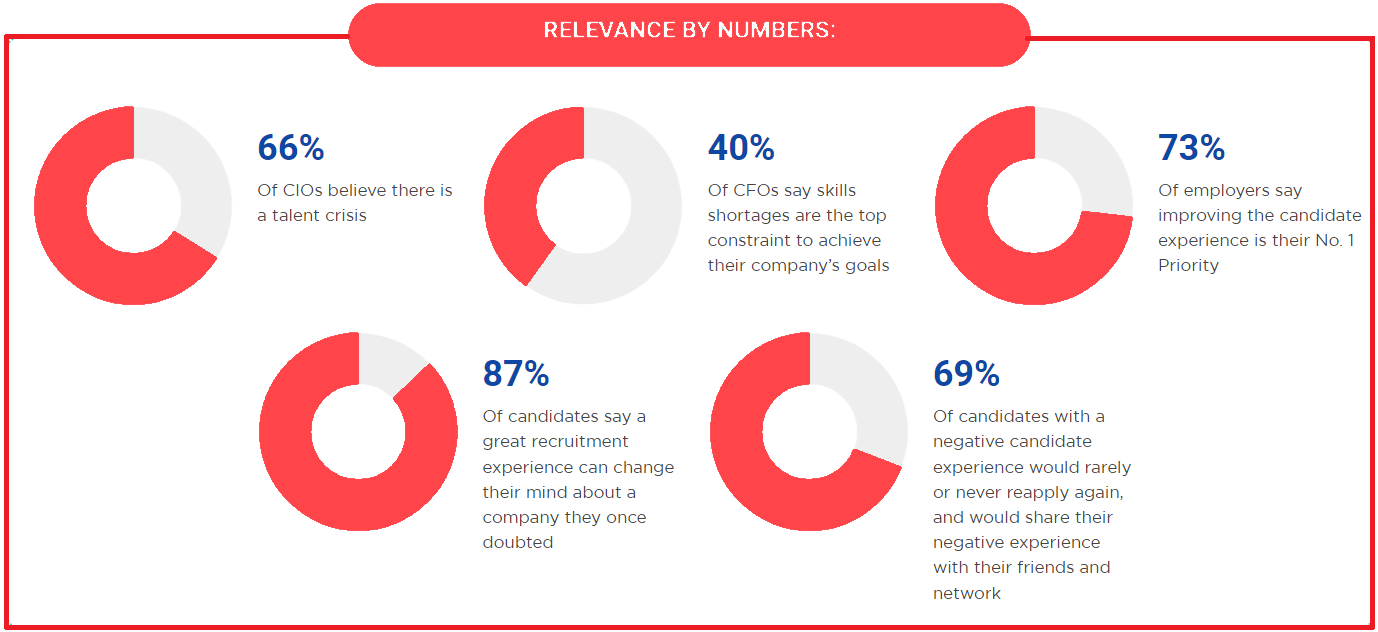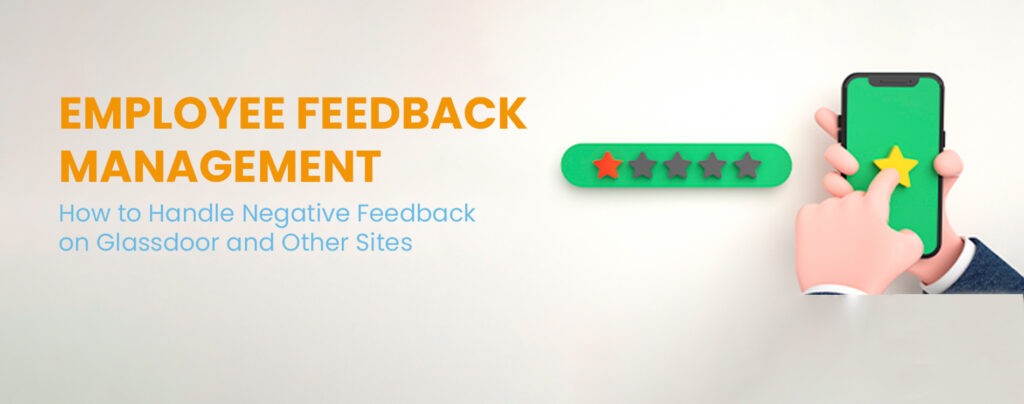WHAT IS RECRUITMENT MARKETING? A SHORT EXPLAINER:
Recruitment marketing is the combination of all the marketing strategies, tactics, and touchpoints that a candidate will encounter during the recruitment process.
It is the earliest stage of talent acquisition and applies modern marketing principles to promote an employer brand to attract and retain the right candidates. It helps employers to grab attention and stand out in the market as an ‘employer of choice’.
Every organization must advance their recruitment marketing plans and should ensure to deploy several tactics such as social media, email marketing, careers site, job boards, etc. to drive maximum engagement by employing all the touchpoints of prospective candidates.
WHY IS RECRUITMENT MARKETING CRITICAL?
The recruitment landscape is changing, and we no longer have the privilege to pick the top talent from a pool of active candidates. The best candidates often aren’t looking for jobs.
With this changed scenario, our marketing strategies need to change accordingly. So, anything you do that builds up your credibility and support you hire the right people is key to any modern recruitment process.

RECRUITMENT MARKETING GOALS:
Recruitment marketing forms the backbone of a proactive sourcing strategy by helping recruiters:
- Introduce: your employer brand to the top talent
- Promote: you as an employer of choice
- Build: talent community to engage candidates with your brand
- Encourage: ideal candidates to apply for vacancies at your company
- Enhance: candidate experience to build a foundation for employee engagement in future
10 TIPS TO AN EFFECTIVE RECRUITMENT MARKETING STRATEGY:
First thing’s first – plot all the touchpoints where potential candidates connect with your brand. But how can you decide the relevant touchpoints in your recruitment marketing plan?
Think of your social media channels, subscribers of your blogs, business newsletters, loyal customers, job boards, website, Google search, employee word-of-mouth, and many more.
Now, choose your recruitment marketing channels accordingly.
Though to make it easy, we’ve pulled together a definitive list of marketing channels you need to include in your recruitment strategy to attract the ideal candidates towards your brand:
1. CAREER WEBSITE
- It is the most effective talent branding tool for providing information to prospective candidates
Bottom Line: 59% of candidates visit the company website after discovering a job. (LinkedIn)
2. SOCIAL MEDIA
- Choose the right channel based on the targeted group
- For Gen Ys or millennials, Facebook might be your go-to. Targeting Gen Z or Zoomers? Consider Instagram or Snapchat
Bottom Line: 73% of millennials found their last position through a social media site. (Aberdeen Group)
3. COMPANY CAREER BLOG:
- It acts as the best source for increasing the website’s search engine rankings
- Also, one of the finest ways to attain topical authority, share company news, and events
Bottom Line: Featuring a blog can increase your website search engine rankings by 434%. (Express Writers)
4. EMAIL MARKETING
- It is a commonly used tactic for marketing
- Personalized emails act as a predominant means of communication to keep in touch with the best candidates
Bottom Line: 90% of recruiting emails aren’t personalized at all. (Hired)
5. JOB BOARDS
- Communicate your values so that it aligns with your brand and EVP
- Don’t miss to mention what you have to offer more than what skills you’re seeking
Bottom Line: The candidate application rate goes up by 34% when a job post includes a video.
6. GOOGLE SEARCH
- Optimize your metadata to ensure you’re showing up online through a simple google search
Bottom Line: 75% of candidates will research a company’s reputation before applying for a job opening. (LinkedIn)
7. VIDEO ADVERTISEMENT
- The video represents 74% of all online traffic, and therefore, are a great way to engage prospecting applicants
- It can help to communicate your company’s story, brand, culture, and mission in a way that words simply cannot
Bottom Line: 51% of respondents would be more attracted to a company that had job postings with visual elements
(images or videos) than to a company that didn’t. (Software Advice)
8. EMPLOYER REVIEW SITES
- Websites such as Glassdoor, Indeed, Great Places to Work are key reference points for job seekers
- Utilize these to understand and monitor how you are seen as an employer
Bottom Line: 83% of job seekers are likely to research company reviews and ratings when deciding on where to apply for a job.
9. GOOGLE ANALYTICS
- It may not help to market your employer brand, but it does provide you and your talent acquisition team web-specific activity data, that should help you to get answers to:
- Which channels generate the most traffic?
- Which channels generate the most applies?
- Which job pages do candidates view the most?
- Which job pages get applied to the most? And many more
10. EMPLOYEE ADVOCACY
- Using current employees as brand advocates will be all the rage in the current times
- Studies have shown that employee’s social media profiles have 10 times more engagement than company pages
Bottom Line: Companies that have an employee advocacy strategy in place are 58% more likely to attract and 20% more likely to retain top talent.
FINAL THOUGHTS
Hopefully, the statistics and tips above gave you some good insights into why recruitment marketing is so valued today and will be in the future.
This was only a beginner’s guide to support your recruitment marketing efforts, but these should resonate with you and your company.
It’s also important to consider how your workforce outside of HR can have a big impact on attracting top talent and career interest




